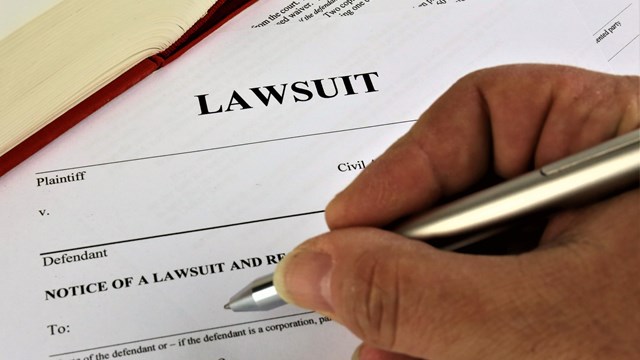Many New York City co-ops have garages leased to the sponsor dating back to the co-op’s conversion. Though these garages, described by one judge as "a veritable gold-mine," throw off riches mostly to the sponsor, a little-known federal statute gives co-ops the right to reclaim the benefit of garage ownership–namely, the high rents the garages generate–and an important recent decision of a federal appeals court has just made it easier to do.
Congress enacted the Condominium and Cooperative Conversion Protection and Abuse Relief Act (the "Abuse Act") in 1980 to combat abusive practices in the wave of co-op and condo conversions that washed over the late 1970s. These abuses were, for the most part, variations on this theme: At the time of conversion, sponsors typically control the board because they usually own a majority of the co-op’s shares until enough units are sold to tip the scales. It is not unusual for the board of a new co-op to contain a majority of directors designated by the sponsor. This sponsor-controlled board then "negotiates" a long-term lease–commonly 50 or 100 years–with the sponsor for control of the income-producing properties attached to the building, such as a garage, laundry room, health club facilities, and retail stores.
It should come as no surprise that when the sponsor negotiates with itself, the primary beneficiary is the sponsor, who agrees to pay the co-op a low, invariably well-below-market rental, and who may then sublet these spaces at the market rate, keeping the profits. The sponsor’s motivation is not only real but substantial: In our parking-starved city, parking garages often generate annual rentals exceeding $5,000 or more per legal space.
When Congress passed the Abuse Act, it aimed to level this playing field by creating a mechanism by which shareholders could re-capture some of the income these rental properties generated. The Abuse Act granted shareholders a two-year window in which to terminate "without penalty" any lease entered into after October 8, 1980 that concerns "property serving the condominium or cooperative unit owners" and which "was entered into while [the co-op or condo] association was controlled by the [sponsor] through special developer control or because the [sponsor] held a majority of votes."
Recapturing the Flag
When Congress enacted the Abuse Act, it did not define or describe the term "property serving the condominium or cooperative unit owners"; it left the task to the courts. Over the years, different co-ops and condos have asked courts to terminate leases covering a variety of different building amenities as "property serving" the co-op. Not only parking garages, but laundry rooms, health facilities, retail stores and linen storage areas all have been the subject of Abuse Act litigation.
Twenty years after passage of the Abuse Act, on May 17, 2000, the United States Court of Appeals of the Second Circuit, in the case of 136 East 56th Street Owners, Inc. v. Darnet Realty Associates has clearly and finally answered one key question under the statute. By unanimous decision, the Second Circuit ruled that parking garages are per se "property serving" the co-op, and are thus the type of facility whose lease a co-op can terminate under the Abuse Act.
While many lower courts have come to the same conclusion, and the Second Circuit itself has discussed the issue in prior decisions, this is the first time that an appellate court has unequivocally ruled that all parking garages are subject to the Abuse Act. The court did so in the face of the sponsor’s argument that the particular garage at issue did not truly serve the co-op, few shareholders parked there, but instead the garage primarily served the general public. The sponsor asked the court to rule that only garages widely used by tenant-shareholders, or only garages giving preferences to shareholders in some way (discounted parking costs, for example) were "property serving" the co-op, and therefore terminable under the Abuse Act.
Laundry room leases also appear to be terminable, but the few courts that have examined other kinds of facilities have declined to permit co-ops to terminate. Courts have refused to allow termination of retail store and swimming pool leases on grounds that these facilities, by their nature, are intended more for the general public than for the shareholders of the co-op or condo in which they are situated. Courts have held that such facilities, unlike parking garages, do not provide "a service that tenants might reasonably expect as an essential adjunct of their apartment complex." As a practical matter, the Abuse Act appears confined largely to parking garages and laundry rooms leased by sponsors to themselves at about the time of co-op or condo conversion.
When Can a Co-op or Condo Terminate?
The Abuse Act provides that a lease termination "may occur only during the two-year period beginning on the date on which special developer control over the association is terminated; or the developer owns 25 percent or less of the units in the conversion project (the number of apartments the sponsor controls, not the number of shares), whichever occurs first. Because the two-year window cannot be extended, it is important to know how each criterion relates to your co-op or condo.
The second criterion referring to 25 percent or less of the units is clear enough. Abuse Act litigation has instead concentrated on the meaning of the term "special developer control" over the co-op or condo. There, we are aided by a definition, but it is a broad and vague one.
The Abuse Act defines "special developer control" as "any right arising under State law, cooperative or condominium instruments, the association’s bylaws, charter or articles of association or incorporation or power of attorney or similar agreement through which the developer may control or direct the unit owners’ association or its executive board."
Litigation frequently arises over the degree to which a developer must "control or direct the unit owners association" for "special developer control" to exist. Does any kind of control over any part of a co-op’s life suffice, or is something more substantial required? These questions are important because co-ops and condos have had to confront may different sets of rights retained by sponsors to protect themselves against certain kinds of board action. If these retained powers amount to "special developer control," their expiration opens the two-year window to an Abuse Act termination of a garage or laundry room lease.
In a typical case, documents governing the co-op or condo (often drafted by the sponsor’s lawyer) grant the sponsor protections that far outlast its actual control over a majority of co-op or condo board seats. Thus, even after the sponsor loses board majority control, co-op governing documents often require a board to obtain sponsor consent before many kinds of important decisions can be made, such as decisions to vote a special assessment, refinance an underlying mortgage, hire or fire staff, or change the services offered by the building. Prior to the decision in 136 East 56th Street Owners, lower courts all agreed that "special developer control" meant more than loss of majority voting rights on the board, but the precise degree of control required was never clearly established. Different courts held different bundles of reserved rights and powers sufficient. There was little uniformity in these decisions, and as a result there was little clear guidance to a board considering termination. No longer.
The Second Circuit’s decision in 136 East 56th Street Owners makes clear just what the threshold for "special developer control" is, and the good news is that the hurdle isn’t high. Like many other sponsors, the sponsor of 136 East 56th Street reserved many specific rights to demand super-majority approval of certain kinds of board or shareholder actions, including the right to veto any change to the co-op’s certificate of incorporation or its bylaws as long as the sponsor held any shares in the co-op at all. The Court of Appeals held that the power to veto changes to the certificate of incorporation or the bylaws are alone sufficient to give the sponsor "special developer control." These vetoes, retained by the 136 East 56th Street sponsor, are among the powers most commonly retained by a sponsor to protect him or herself after the loss of board majority. The 136 East 56th Street Owners decision effectively lowers the hurdle eligible co-ops must leap, in the presence of veto powers of the sort the sponsor retained, boards will no longer have to analyze each of the other retained powers to determine whether "special developer control" exists. Many co-ops and condos which may not have thought themselves able to terminate garage leases may now undoubtedly do so.
With many sponsors retaining the veto powers discussed above for as long as they hold any unsold shares, the key threshold of the opening of the two-year window becomes the second criterion, the date the sponsor first owns fewer than 25 percent of the units. This date can be fixed precisely, and should rarely be the subject of any dispute.
The Mechanics of Termination
The right to terminate belongs to unit owners, not to the board of directors. Section 3607 of the Abuse Act requires that termination must be "by a vote of owners of not less than two-thirds of the units other than the units owned by the developer or an affiliate of the developer." Both the giving of notice of termination, and its effective date 90 days hence, must be within the two-year window of opportunity. Notice must be delivered by hand or by mail.
One final bit of good news for co-ops or condos considering an Abuse Act termination: Successful co-ops, provided they are plaintiffs, are entitled to recover their attorneys’ fees, appraisers fees, and other disbursements of the kind often encountered in litigation. With the cost of litigation, this is not an inconsiderable benefit to a co-op or a condo with a meritorious case. In the 136 East 56th Street Owners case, the Court of Appeals affirmed an award of almost $100,000 in attorneys’ fees to the co-op and against the sponsor, and the co-op is now seeking additional fees for the work spent prevailing on appeal. Could your building be next?
Mr. Poretz and Ms. Weiss are attorneys with Richards & O’Neil, a law firm in Manhattan which successfully litigated on behalf of 136 East 56th Street Cooperative. Hope Itzkowitz, an associate at the firm, assisted in this article’s preparation







Leave a Comment